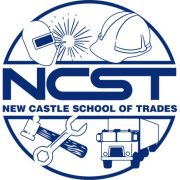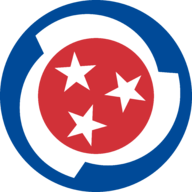| Type | Less than 2 year, Public |
|---|---|
| Campus locale | Rural: Fringe |
| Degrees offered | Undergraduate |
| Calendar system | Differs by program |
| Student body size | Small |
|---|---|
| Student to faculty ratio | 5 to 1 |
| Students retention rate | 38% |
| On-time graduation rate | 30% |
Located in Concord Twp, Ohio, Auburn Career Center is a public, institution that offers undergraduate degrees.
One of the notable aspects of Auburn Career Center is its open admission policy. This means that all high school graduates and individuals who hold a GED qualification are eligible to apply for admission. This inclusive approach allows a wide range of students to pursue their higher education goals, regardless of their academic background.
Auburn Career Center is accredited by the Council on Occupational Education, ensuring that the institution meets certain standards of quality and effectiveness. This accreditation also allows students to transfer credits to other accredited institutions if they choose to continue their education elsewhere.
With a students-to-faculty ratio of 5-to-1, Auburn Career Center emphasizes small class sizes, fostering a supportive and interactive learning environment.
While the on-time graduation rate at Auburn Career Center is reported to be 30%, it is essential to consider the context of this statistic. For comparison, Ohio state's graduation rate for the 2021-2022 was 35% whereas the national average was 74%.
The retention rate of students at Auburn Career Center is 38% , which is lower than both the state and national averages. The state average retention rate in Ohio is 62%, while the national average is 76%. This indicates that a significant proportion of students who enroll at Auburn Career Center do not continue their studies after the first year.
-
Accredited by: Council on Occupational Education
Admission
The institution does not have any selection criteria for enrollment. All high school graduates and GED certificate holders are eligible for admission.
Tuition & Fees
Emergency Medical Technology/Technician (EMT Paramedic)
| Program Length | 11 months |
| Tuition and Fees | $5,215 |
| Books and Supplies | $1,270 |
| Total Cost | $6,485 |
Heating, Air Conditioning, Ventilation and Refrigeration Maintenance Technology/Technician
| Program Length | 11 months |
| Tuition and Fees | $7,341 |
| Books and Supplies | $926 |
| Total Cost | $8,267 |
Welding Technology/Welder
| Program Length | 11 months |
| Tuition and Fees | $7,434 |
| Books and Supplies | $1,389 |
| Total Cost | $8,823 |
Similar schools that provide the same program:
Machine Shop Technology/Assistant
| Program Length | 9 months |
| Tuition and Fees | $7,220 |
| Books and Supplies | $1,296 |
| Total Cost | $8,516 |
Similar schools that provide the same program:





Average Net Price
The net price represents the amount of money students pay after receiving financial aid. In 2022, the average net price for first-year, full-time students at Auburn Career Center was $19,792. This amount varies among students due to the different levels of financial aid offered based on their family's financial status.
Financial aid includes federal, state, or local government grants and institutional grants and scholarships
Below is the average net price of Less than 2 year, public colleges in Ohio and nationwide.
| Ohio's average | $12,095 |
|---|---|
| National average | $12,007 |
How does Auburn Career Center's $19,792 net price compare to similar institutions nationwide?
Tuition Plans
Tuition plans offered by Auburn Career Center during 2022 academic year.
-
Prepaid tuition planNot Offered
-
Guaranteed tuition planNot Offered
-
Tuition payment planOffered
-
Other alternative tuition planNot Offered
Financial Aid
Average Grant & Scholarships
In 2022, 54 of freshman students at Auburn Career Center received on average $3,657 in grant and scholarships from the college, the state and/or the federal government. Below is detail stats of the aid provided to full-time, freshman students.
Average Student Loans
In 2022, 36% of freshman students at Auburn Career Center received $7,644 (average) in federal student loan. Below is detail stats of all the loans provided to full-time, freshman students.
Post-9/11 GI Bill
Post 9/11 GI Bill is a federal education benefit program for veterans, who served on active duty after September 10, 2001. This Department of Veteran Affairs benefit provides up to 36 months of education benefits at an approved institution for the following college costs: tuition and fees, books and supplies and housing. The tuition and fees payment, which is the cost for an in-state student attending a public institution, is made directly to the post-secondary institution whereas payments for books and supplies and housing are sent directly to the student.
Academic Programs
Health Professions
Total number of students graduated under this category 38Emergency Medical Technology/Technician (EMT Paramedic)
Licensed Practical/Vocational Nurse Training
Automotive Technology
Total number of students graduated under this category 26Heating, Air Conditioning, Ventilation and Refrigeration Maintenance Technology/Technician
Electrical/Electronics Equipment Installation and Repair Technology/Technician
Law Enforcement and Firefighting
Total number of students graduated under this category 22Fire Science/Fire-fighting
Precision Production
Total number of students graduated under this category 16Welding Technology/Welder
Machine Shop Technology/Assistant
Outcome
Graduation Rate
Out of 144 students who enrolled in 2018 and after, 43 students graduated within the normal graduation time of their respective program and 82 students graduated late (within 150% of the normal time it takes to graduate).
56.9%
Dropout Rate
Out of 144 students who enrolled in 2018 and after, 23 students dropped out of the school.
16.0%
Still Enrolled
From the cohort of 2018, as of August 31, 2021, 39 students are still enrolled in the school.
27.1%
Students Population
Gender Diversity
Based on the 2021-2022 data, the undergraduate student population at Auburn Career Center is greatly skewed towards men students, with 82.8% of undergraduate students being men and 17.2% being women. The total number of full-time, first-year undergraduate students is 99, with 17 women and 82 men.
- men 82.8% 82 students
- women 17.2% 17 students
Students Age Diversity
- 20-21 24% 24 students
- 18-19 19% 19 students
- 22-24 16% 16 students
- 25-29 14% 14 students
- 30-34 7% 7 students
- 35-39 6% 6 students
- 40-49 6% 6 students
- 50-64 6% 6 students
Miscellaneous
Service Offerings
- Remedial services
- Placement services for graduates
- Academic/career counseling services
- Employment services for students
Educational Offerings
- Occupational
- Postbaccalaureate Recreational or avocational education
- Adult basic remedial or high school equivalent
Veteran Services
- Yellow Ribbon Program (officially known as Post-9/11 GI Bill, Yellow Ribbon Program)




















